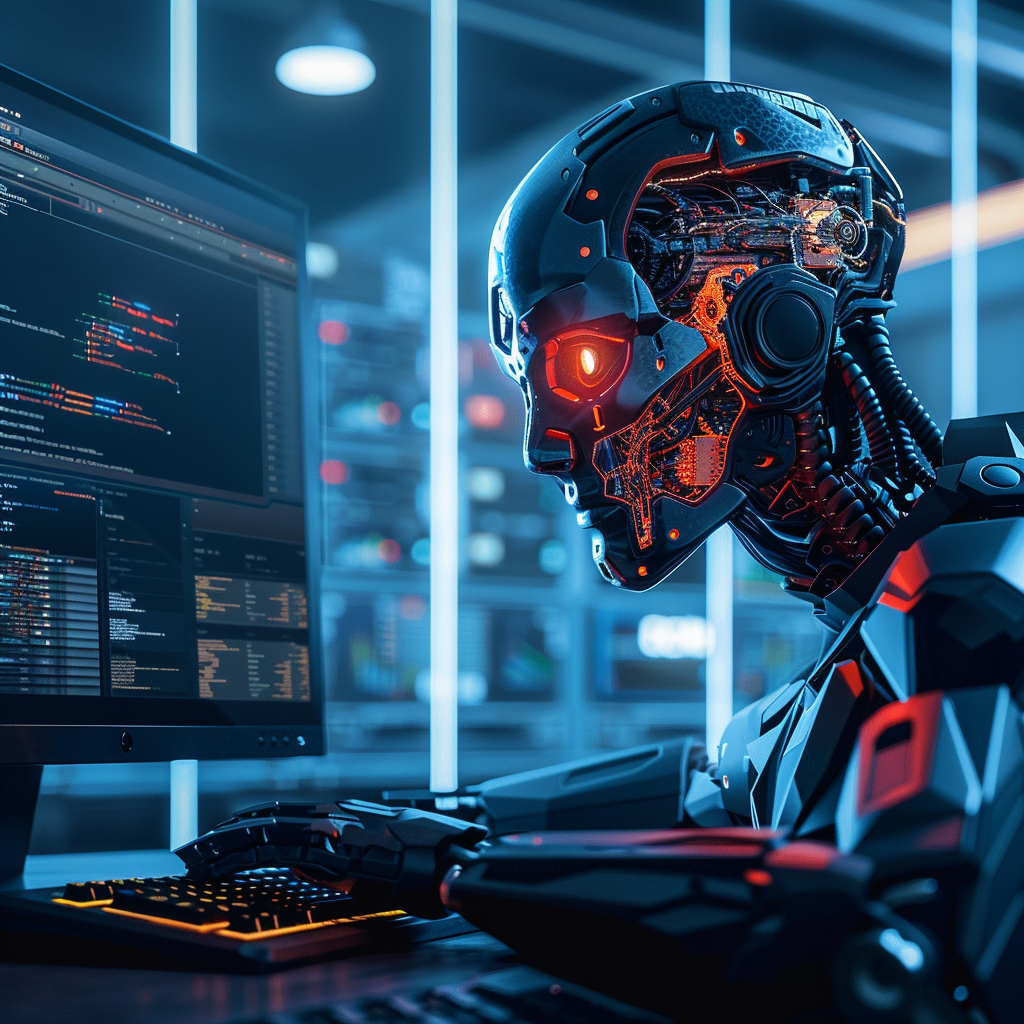
Artificial intelligence (AI) is revolutionizing the field of cybersecurity by enhancing the capabilities of organizations to detect and respond to cyber threats. But even as AI technology improves, there is still a strong need for human intervention. In this blog post, we will explore how AI is shaping the cybersecurity landscape, current developments in AI for cybersecurity, and the future implications of this technology in safeguarding digital assets.
Developments in AI for Cybersecurity
Machine Learning
One of the key advancements in AI for cybersecurity is the utilization of machine learning algorithms. These algorithms enable security systems to analyze vast amounts of data to identify patterns and anomalies that may indicate potential security breaches. By continuously learning from new data, machine learning algorithms can improve threat detection accuracy and speed up response times.
Example: Random Forest
One example of a machine learning algorithm used in cybersecurity is the Random Forest algorithm. Random Forest is a supervised learning algorithm that can be used for both classification and regression tasks. In cybersecurity, Random Forest can be employed to detect and classify malicious activities such as malware, phishing attacks, and intrusions.
Random Forest works by constructing multiple decision trees during the training phase and then combining their outputs to make predictions. Each decision tree is trained on a subset of the data and a subset of the features, which helps to reduce overfitting and improve accuracy. The algorithm then aggregates the predictions from all the trees to determine the final classification.
Random Forest is particularly effective in cybersecurity because it can handle large and complex datasets, is resistant to overfitting, and provides insights into which features are most important for making accurate predictions. It can help cybersecurity professionals identify patterns and anomalies in network traffic, user behavior, and system logs to proactively detect and mitigate security threats.
Behavioral Analytics
AI-powered systems can analyze user behavior and network activities to detect unusual patterns that may indicate malicious intent. By understanding normal behavior patterns, AI can identify deviations that could signify a security threat, enabling organizations to take proactive measures.
Example in Action
The user logs into a company’s network using their credentials. The AI system analyzes the user’s behavior patterns, such as usual working hours, typical devices used, and common access locations. Suddenly, the user accesses sensitive files outside of their normal pattern, such as late at night, or from a new location. User Behavior Analytics (UBA) with AI flags this as an anomaly and triggers an alert to the security team. From here, the security team investigates further and discovers that the user’s credentials have been compromised. Prompt action is then taken by the team to secure the account and prevent any potential data breach.
AI Powered Authentication
AI-powered authentication is a cutting-edge technology that leverages artificial intelligence to enhance cybersecurity measures. By utilizing machine learning algorithms, AI can analyze patterns, behaviors, and data to identify and verify users, devices, and access requests in a more efficient and accurate manner.
Benefits
One of the key benefits of AI-powered authentication is its ability to adapt and improve over time. This dynamic approach allows AI systems to continuously learn from new data and adjust their authentication methods to combat emerging threats and vulnerabilities. AI-powered authentication can enhance user experience by providing seamless and frictionless access to authorized users while maintaining robust security measures. By analyzing contextual data such as location, time of access, and device information, AI can make real-time decisions on granting or denying access without compromising security.
Future Implications of AI in Cybersecurity
Anyone in charge of purchasing cybersecurity tools (or who is interested in the tech space in general) has been hearing about AI for years. Oftentimes, it has been used as a buzzword and not much more. Even so, AI technology is constantly evolving and improving, and cannot be ignored when it comes to cybersecurity.
Advancements in threat detection through AI will enable organizations to stay one step ahead of cybercriminals. AI algorithms can predict and prevent potential threats by analyzing data in real-time and identifying vulnerabilities before they are exploited.
The automation of security processes through AI will streamline cybersecurity operations and reduce the burden on human analysts. AI-powered tools can autonomously respond to security incidents, investigate alerts, and even remediate threats without human intervention. This not only enhances efficiency but also allows human analysts to focus on more strategic tasks.
Artificial intelligence is playing a pivotal role in enhancing cybersecurity by providing advanced capabilities for threat detection, incident response, and overall risk management. As AI continues to evolve, its integration into cybersecurity practices will become increasingly essential for organizations to protect their digital assets in an ever-evolving threat landscape.
The Human Element
AI should not be seen as a way to replace security teams entirely. Tools that utilize AI are great for combing through data points, and significantly reducing time it takes to complete certain tasks. These are helpful when it comes to preventing attacks, but are not as useful when it comes to responding to successful attacks. It is unlikely a company’s cybersecurity needs will ever be entirely automated.
Further Reading
Subscribe to PeerWise to get access to all of our articles. If you want to learn more about cybersecurity tools, we have many articles breaking down these solutions such as endpoint security and risk and compliance solutions.




Leave a Reply